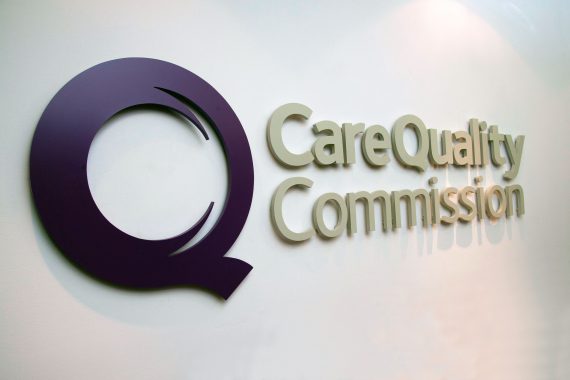Exclusive The CQC is going to review a High Court recommendation to make its inspection report complaints process fairer to GP practices, with the judge suggesting this could cut back on unnecessary and costly litigation in the courts.
The CQC was told to appoint an independent expert to review GP practices’ requests for factual corrections before publishing their inspection report, rather than leaving it solely up to the lead inspector.
High Court judge Mrs Justice Andrews said in a ruling last week that there was ‘little point in giving someone an opportunity to make factual corrections, if there is no procedural mechanism for safeguarding against an unfair refusal to make them’.
GP leaders welcomed the ruling, adding that the CQC needs to take a ‘long, hard look at its own processes’.
In the ruling, Justice Andrews ‘rejected’ the CQC’s ‘stance adopted during the hearing’ that there should be no mechanism for complaining against decisions taken during this 10-day window for factual corrections.
Justice Andrews was ruling on a judicial review claim brought by private APMS provider SSP Health, which had three practices in the north west of England put into special measures last year after a CQC inspection found their services ‘inadequate’.
The judge said it was a ‘disproportionate burden’ to expect the inspected party to bring a legal claim in the courts, adding: ‘It is well established that judicial review should be a course of last resort. Moreover, this court is generally an inappropriate place to resolve disputed issues of fact.
‘Legal proceedings are time-consuming and costly for all concerned. Both the regulator and the regulated body will be subject to financial, as well as time, constraints.’
She added that she was ‘not convinced’ that the CQC’s lead inspector should be the ‘sole arbiter’ of whether any changes should be made to a report, and suggested that the CCG should have an internal independent process instead.
‘An independent person within the CQC ought to be able to tell fairly swiftly whether there is or is not a legitimate grievance about the lead inspector’s failure to correct the report. Such a person should be much better placed to resolve that grievance than the court is.’
A CQC spokesperson said: ‘As part of CQC’s strategy for the future regulation of general practice, we are looking at all aspects of our methodology to determine what needs to be improved.
‘We will ensure the recommendations made by Mrs Justice Andrews DBE on Friday 12 August are considered as part of this process. Any changes to our methodology will be subject to consultation.’
SSP Health took legal action against the CQC on the basis that the lead inspector refused to change the draft inspection report for the Seaforth Village Surgery in Liverpool in light of factual errors being pointed out. It has since lost the APMS contract.
The judge ruled that the CQC has to internally review the case in question, because it was ‘not entitled to refuse… a reasonable request for it to review or reconsider its responses to the claimant’s factual accuracy comments and then to re-evaluate the ratings in the light of any corrections’.
She also suggested the CQC could have extended the strict 10-day checking period for factual accuracy, saying that in light of the circumstances, ‘a delay in publication of a further week or fortnight whilst the four specific grievances were considered would not be disproportionate or cause undue damage to the public interest’.
Simon Butler, the barrister representing SSP Health in the court case, told Pulse: ‘The judge has effectively said no, I can’t accept that. I can’t have people coming to court judicial reviewing all the time – it is too expensive, it is inappropriate. You must put in place a system, with somebody independent, not the original lead inspector, to review the dispute.
‘She has ruled that is what they have to do.’
Dr Robert Morley, chair of the GPC contracts and regulations subcommittee, said: ‘This High Court judgement only goes to provide further proof of what so many people who have had any dealings with CQC have been saying for a very long time- the organisation needs to take a long hard look at its own processes and procedures before it continues to pass judgments on others.
‘It’s a huge and completely unnecessary burden on general practice and as an immediate step all its GP inspections and ratings should be suspended until it has shown in can get its own house in order.’
Pulse October survey
Take our July 2025 survey to potentially win £1.000 worth of tokens














